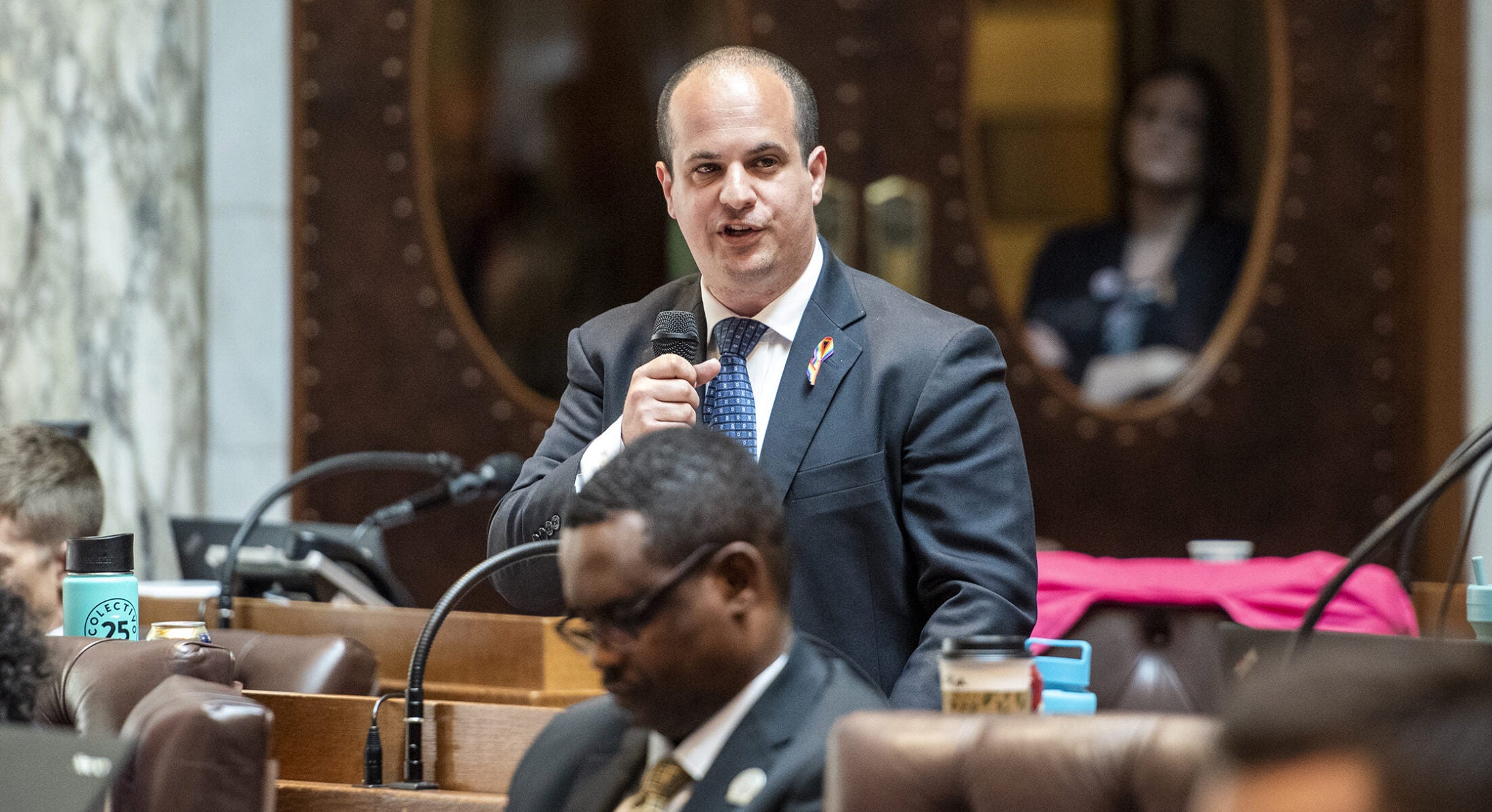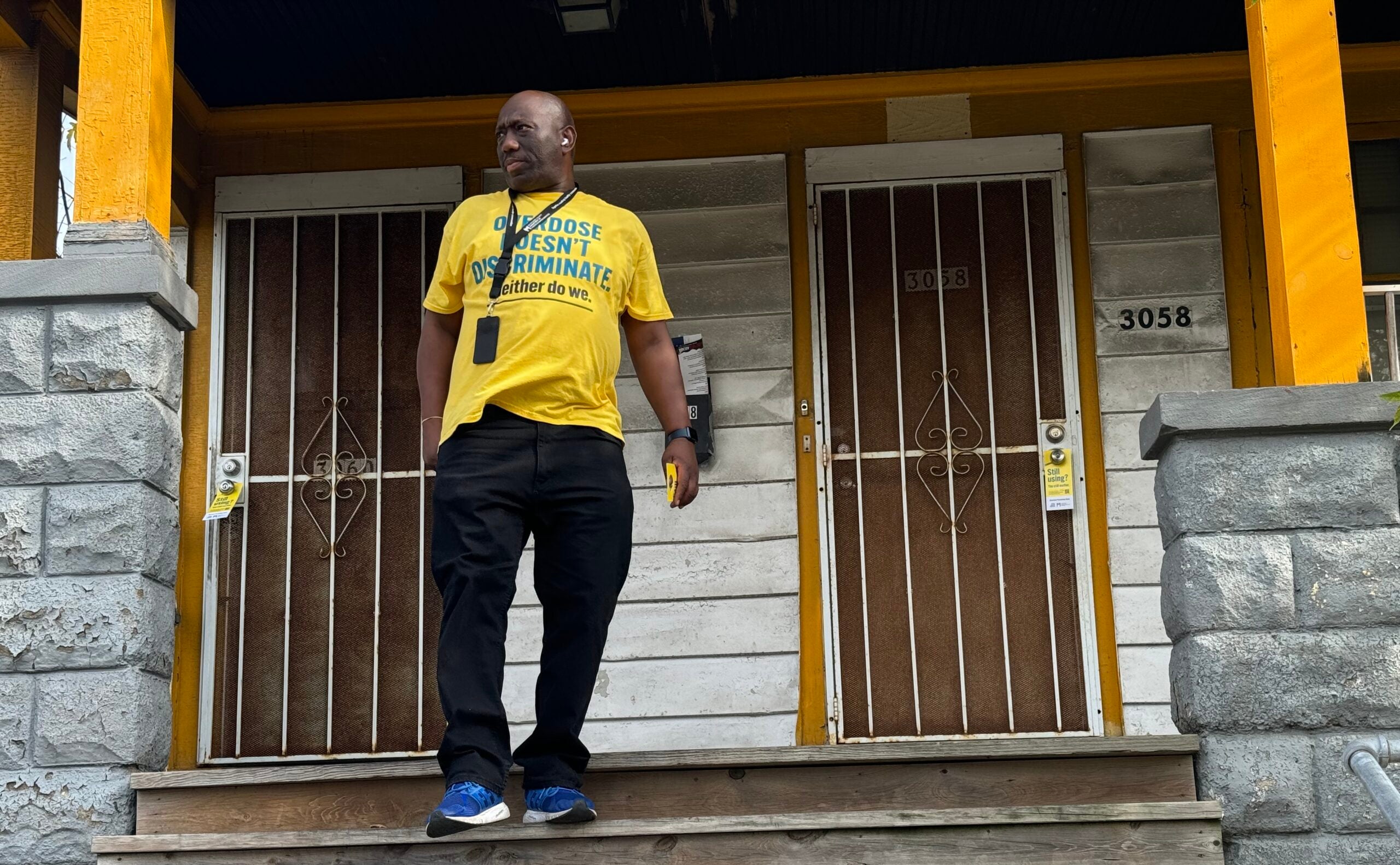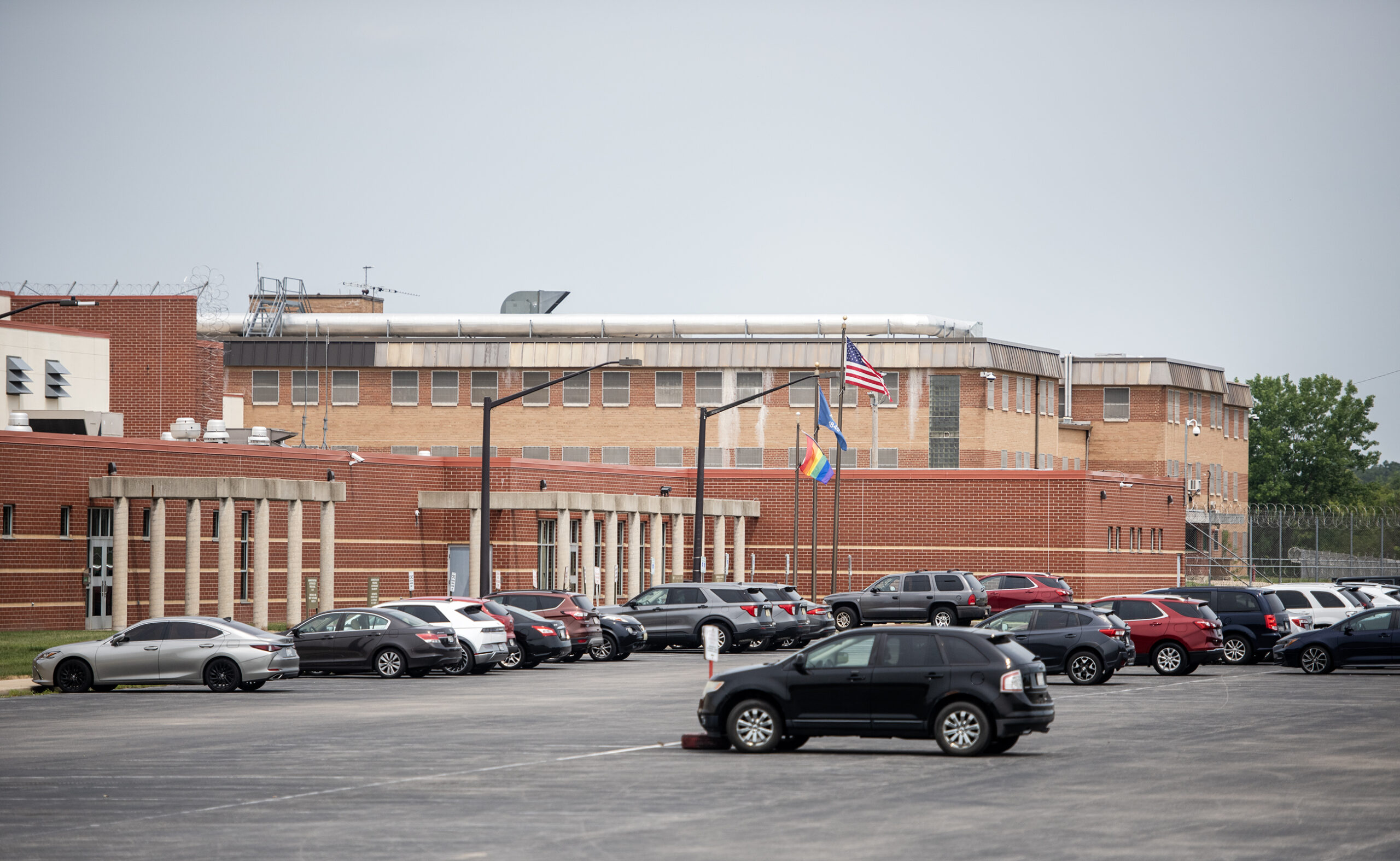As a lawmaker, Jonathan Brostoff was a passionate advocate for suicide prevention efforts, drawing on his own experience to try to persuade others of the need for legislation like red flag laws.
While serving on the Speaker’s Task Force on Suicide Prevention in 2019, Brostoff wrote a guest column sharing that for him, the issue was personal. Years earlier, he wrote, he had been diagnosed with depression and attempted suicide more than once.
Preventing access to firearms for people at high risk would save lives, he wrote. “With bipartisan action and a committed strategy on guns and suicide, we could potentially cut suicide deaths nearly in half,” Brostoff wrote.
Stay informed on the latest news
Sign up for WPR’s email newsletter.
On Monday, Brostoff, 41, died by suicide, according to a statement from the Milwaukee County Medical Examiner’s Office.
Milwaukee Mayor Cavalier Johnson called his death a “tragic loss.” While speaking to reporters, he said they were close friends.
“He and I, we were speaking almost daily over the course of the last week,” Johnson said. “I wish that I would have known just the amount of pain he was in.”
The former Democratic representative for Wisconsin’s 19th State Assembly District and Milwaukee alder who served the city’s east side is remembered as an advocate for mental health resources.
“An expert in cancer can still die from cancer, right,” said Gena Orlando, the Wisconsin area director of the American Foundation for Suicide Prevention. “An advocate for cancer research can still die from cancer, and the same is true for mental health issues and suicide.”
In Brostoff’s column for the Wisconsin State Journal, the Milwaukee native wrote that he had been “diagnosed with ADD, ADHD, severe depression and bipolar disorder.”
“I wish those diagnoses and the attendant medications, hospital stays, and all of the other steps my family and I took at the time had been enough,” Brostoff wrote. “But as is the case for many facing mental health crises, they weren’t.”
Brostoff wrote that he attempted suicide “more than once,” and that he had also lost a friend who died by suicide by firearm. That led him to be an advocate for gun reform as a state lawmaker.
“And as someone who has faced that darkness and lived to share my story, I am so thankful I didn’t have access to a gun when I thought that leaving this world was the best way to handle everything that came with it,” Brostoff wrote in the column.
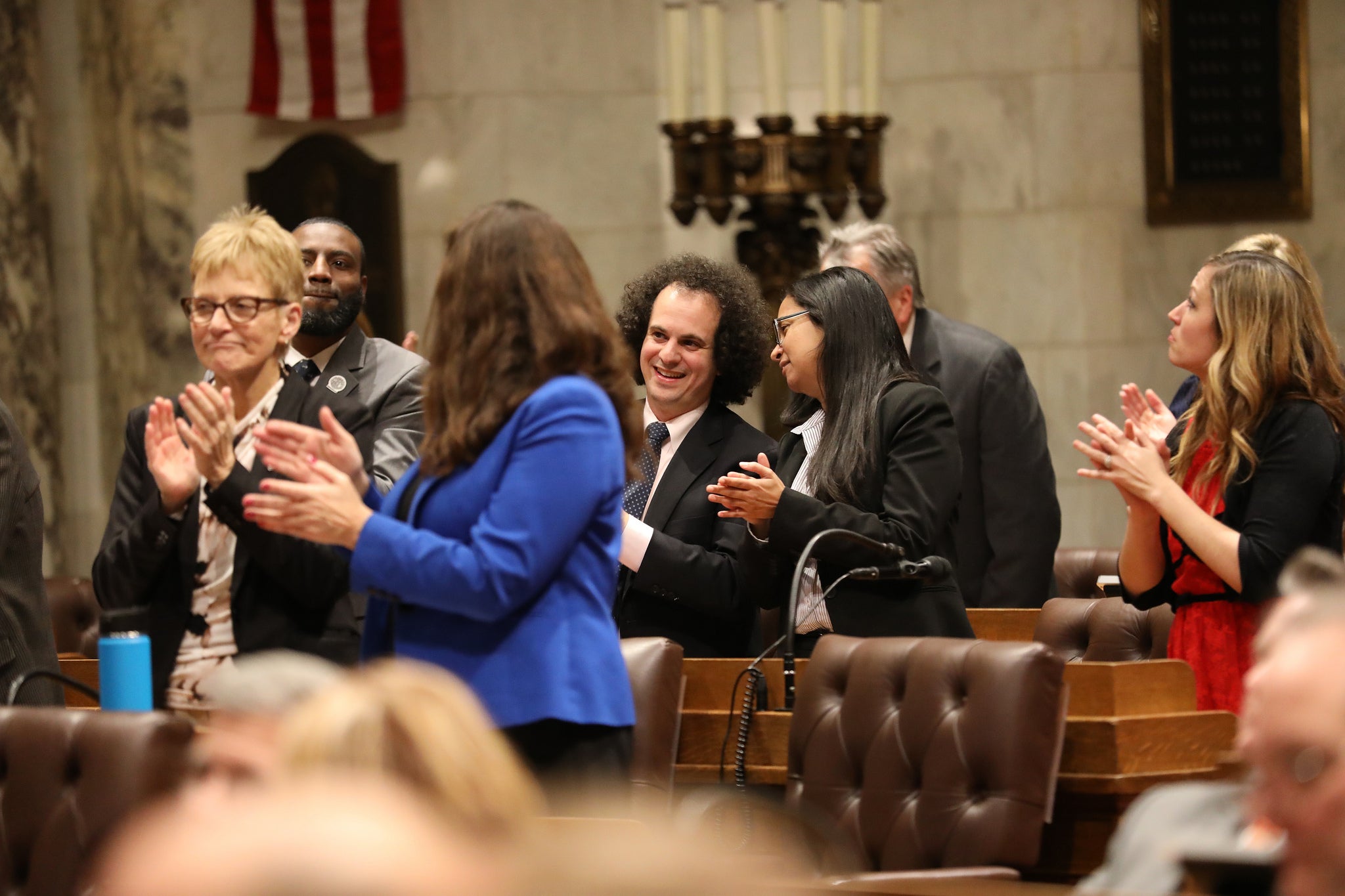
According to data from the Wisconsin Department of Health Services , 932 people died by suicide across the state in 2022. Of those, 56.7 percent involved a firearm.
The American Foundation for Suicide Prevention has found that 85 to 90 percent of suicide attempts with a gun are fatal.
Sen. Chris Larson, D-Milwaukee, said Brostoff was a friend. He said as a state lawmaker, Brostoff had pushed for gun reforms, including red flag laws and universal background checks.
“To honor his legacy, I will do all I can to make these reforms a reality in Wisconsin,” Larson wrote in a social media post. “We can’t afford to keep losing loved ones to gun violence.”
Extreme risk protection orders, or red flag laws, can temporarily restrict a person’s ability to get a gun, “if they are found to present a significant risk of harming themselves or others,” according to Giffords Law Center to Prevent Gun Violence. But no such law exists in Wisconsin.
In an interview with WPR, Larson said he supports that measure. He said as long as he’s a state lawmaker, he’ll push for gun reforms that Brostoff himself supported.
“No one else should be deprived of their most loved one because we fail to act as legislature,” Larson said.
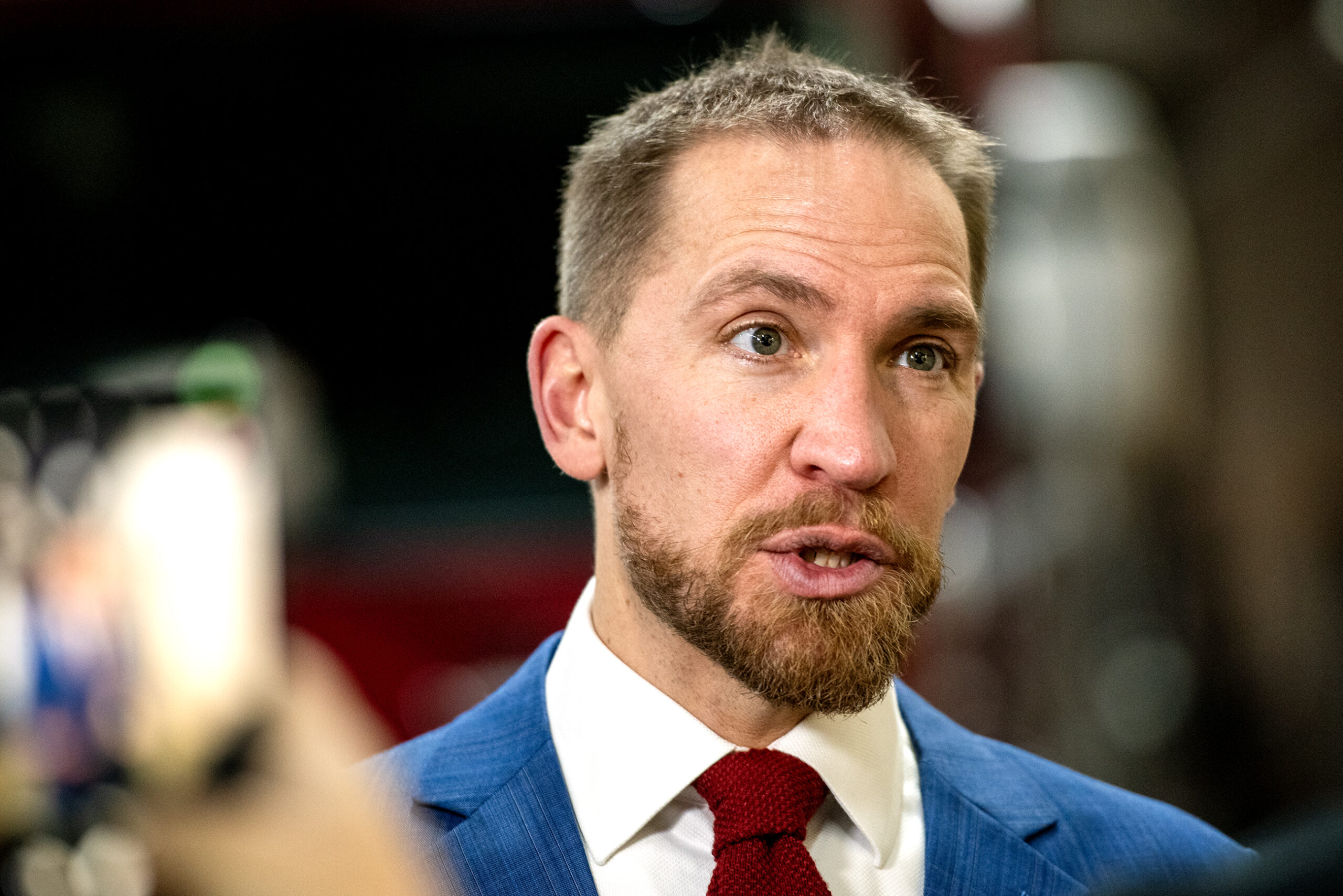
Julie Cerel, a licensed psychologist and director of the Suicide Prevention and Exposure Lab at the University of Kentucky College of Social Work, said firearms are “highly lethal” for someone who is attempting suicide.
“Things like red flag laws or background checks can really help people from having a gun and using it when they’re suicidal,” Cerel said.
In a statement announcing that flags across the state would be flown at half staff for Brostoff on Friday, Gov. Tony Evers said, “Jonathan’s passing is a tragedy to all who knew him and for the many whose lives have been bettered because of his service and advocacy.”
Cerel said a suicide often has ripple effects throughout a community. Research has shown that each suicide affects around 135 people. But for a public figure like Brostoff, Cerel said the impact can be much greater.
“I think for some people, knowing that someone who is so well known and so respected died by suicide, makes them question if they have the internal resources to cope with the stressors they’re facing,” Cerel said.
Cerel said some people who knew someone who died by suicide might feel guilty, or be angry or depressed. But for others, it might lead them to have their own suicidal ideations.
That’s why experts say having resources available is so important.
“Any death by suicide is impactful to communities in complex ways,” Orlando said. “Having resources available, and knowing where to get those resources, is really so important during those days where those stories are running and immediately after anybody finding out that somebody has died by suicide.”
Orlando encouraged people to reach out to others if they are struggling.
“Finding connection is really, really important,” she said.
She also said it’s also important to support others who lost someone to suicide.
“We should treat people who lost somebody to suicide the same way we would treat somebody who lost somebody to any other cause of death,” Orlando said.
A ‘dedicated and passionate’ Milwaukeean
Brostoff served as a Democratic representative for Wisconsin’s 19th State Assembly District from 2015 to 2022. He served as an alder for Milwaukee’s east side since 2022.
“This entire community cared about Jonathan very, very deeply,” Mayor Johnson said. “I cared about Jonathan very, very deeply.
Milwaukee city clerk Jim Owczarski first met Brostoff when he came to city hall as an aide for former Milwaukee Alder Michael D’Amato. During those days, Owczarski said Brostoff would run around city hall wearing a rainbow colored kippah.
“He was enthusiastic then, and he never lost it,” Owczarski said.
Brostoff was a vocal supporter of the social justice marches that occurred in Milwaukee County in 2020. He was an advocate for safe streets and could often be seen riding his bicycle in the city. He was also hard to miss after he grew his hair out to advocate for legislation for more sign language interpreters.
A statement from the Milwaukee Jewish Federation called him a “dedicated” resident of the city.
“Jonathan was a dedicated and passionate Milwaukeean, a proud member and advocate of the Jewish community and a champion of service and advocacy,” the statement said. “Jonathan’s passion for democracy, life of public service and tireless work for the greater good are gifts that will live on.”
Democratic Party of Wisconsin Chair Ben Wikler also said he was a “dedicated public servant.”
“Wisconsin will not soon forget the mark he left on our state,” Wikler wrote in a statement.
A GoFundMe set up for his wife and four children had raised over $100,000 as of Thursday afternoon.
Brostoff’s funeral is Friday.
If you or someone you know is considering suicide, you can call or text the three-digit suicide and crisis lifeline at 988. Resources are also available online here.
Wisconsin Public Radio, © Copyright 2025, Board of Regents of the University of Wisconsin System and Wisconsin Educational Communications Board.
